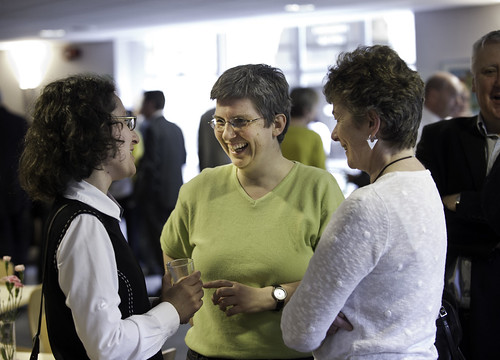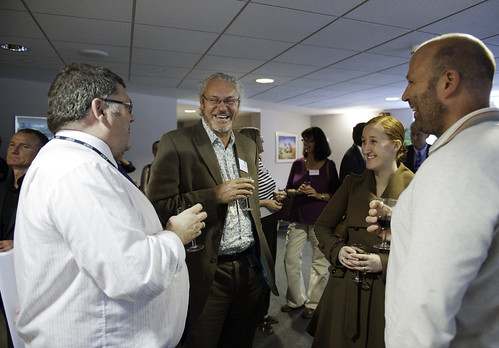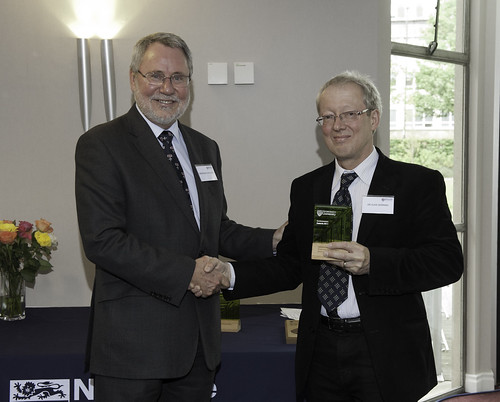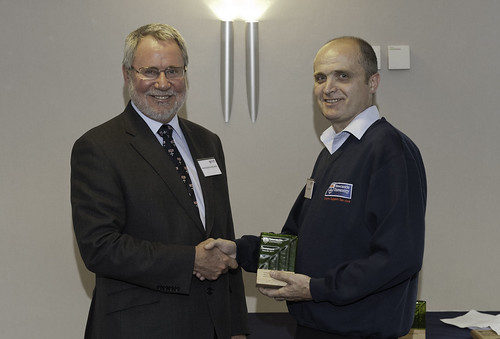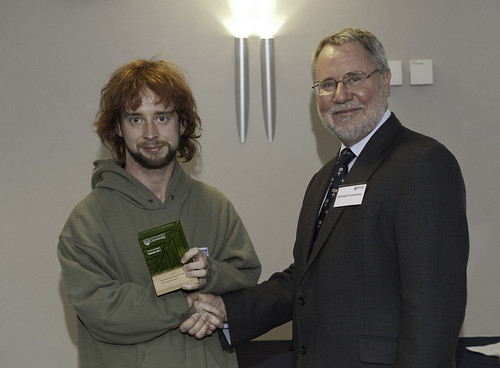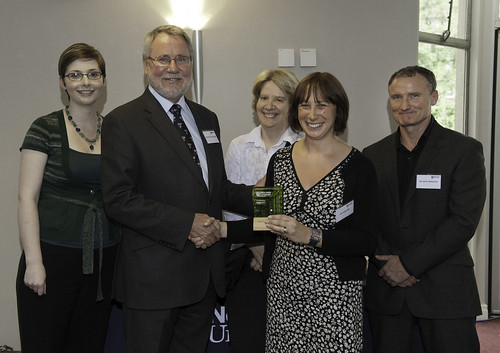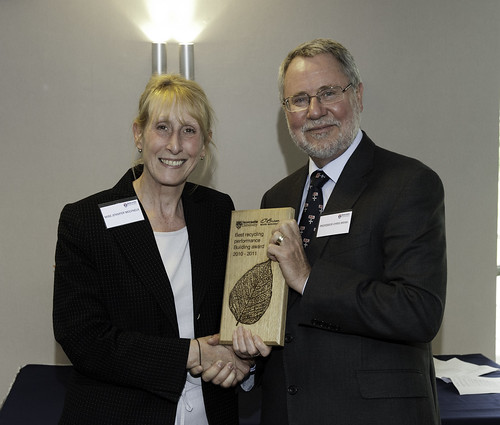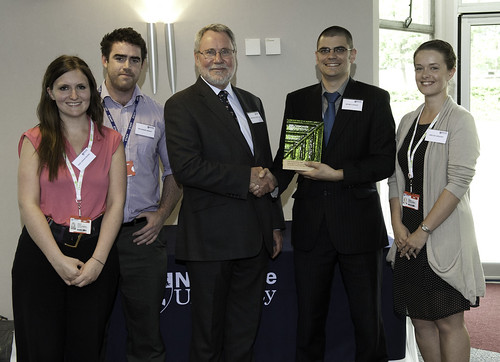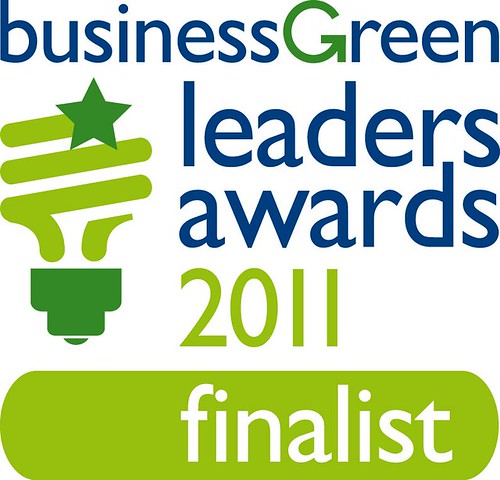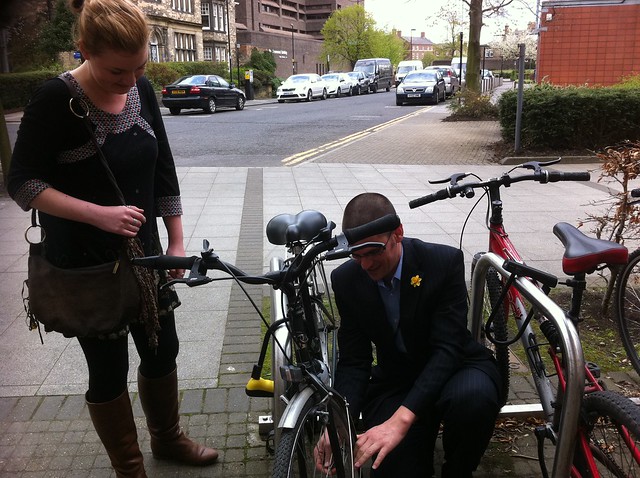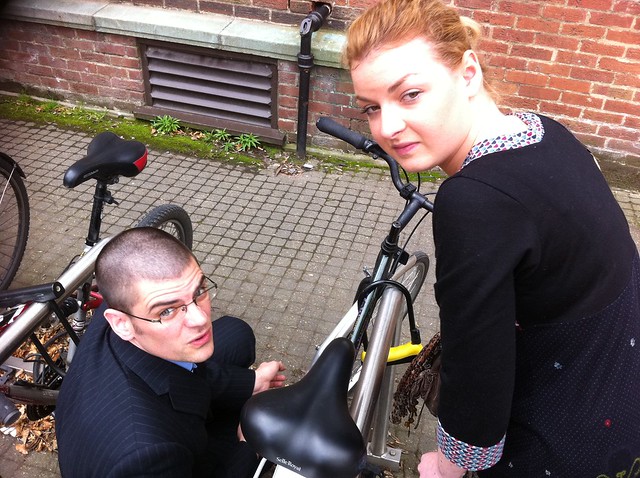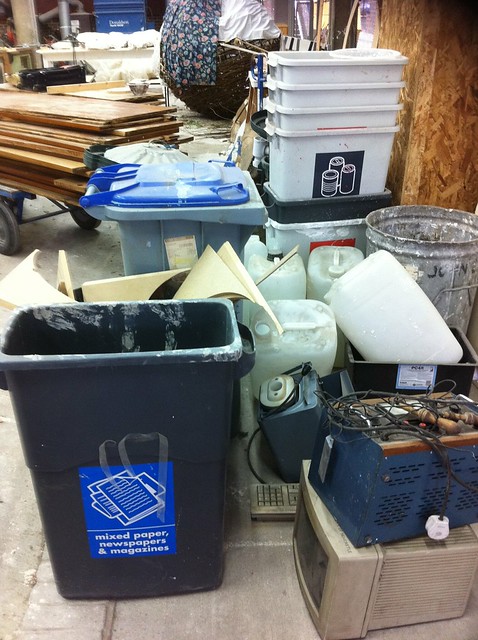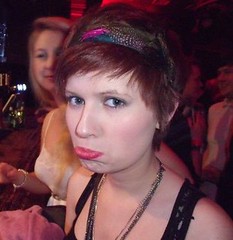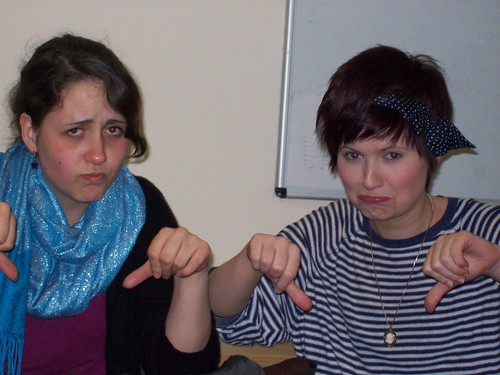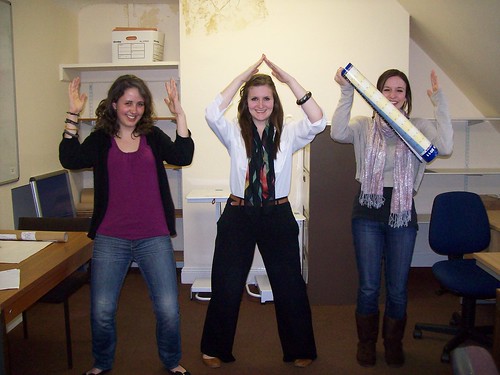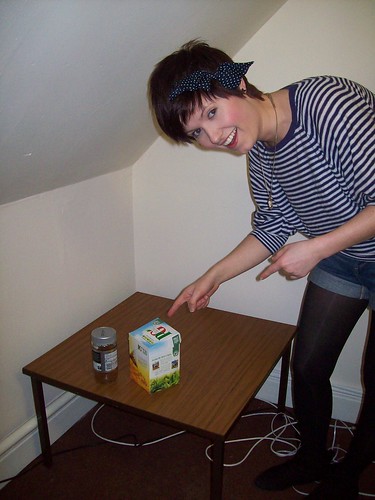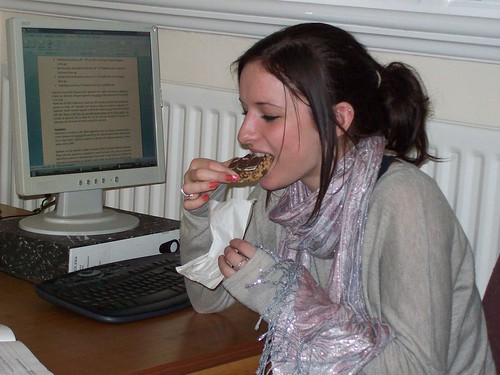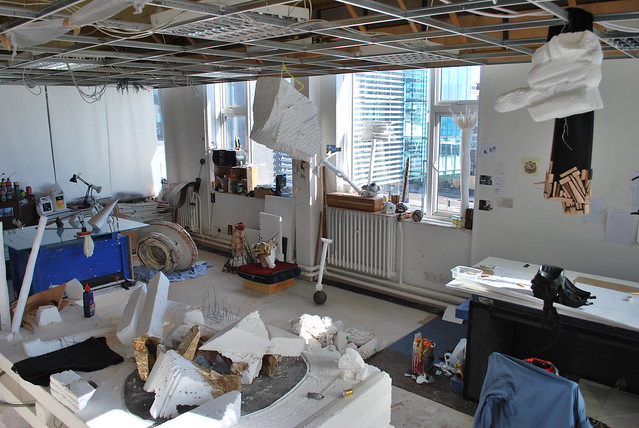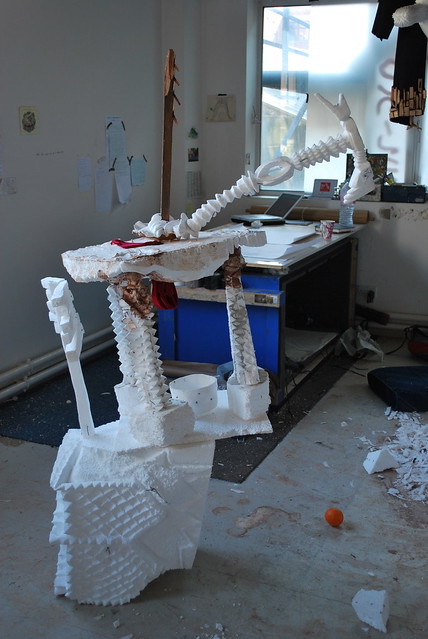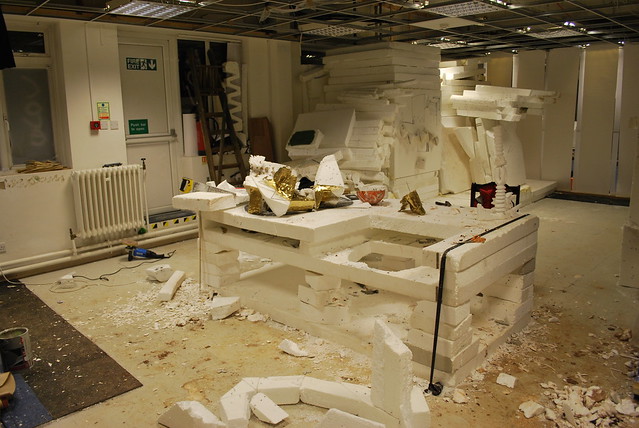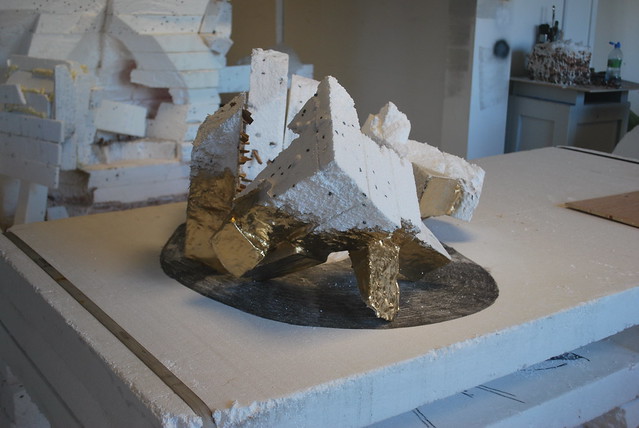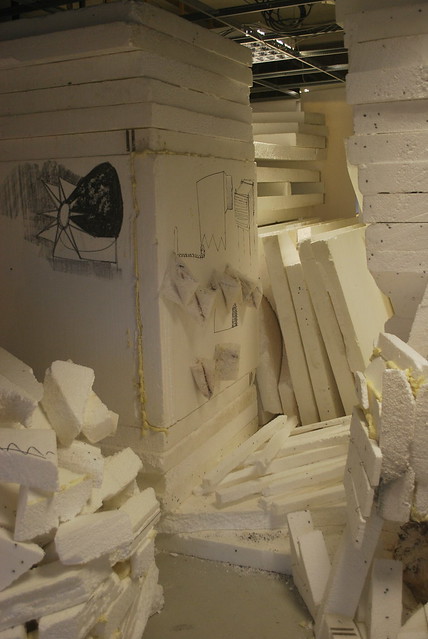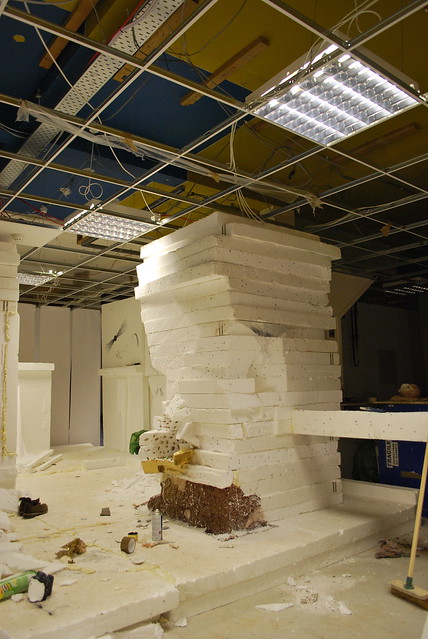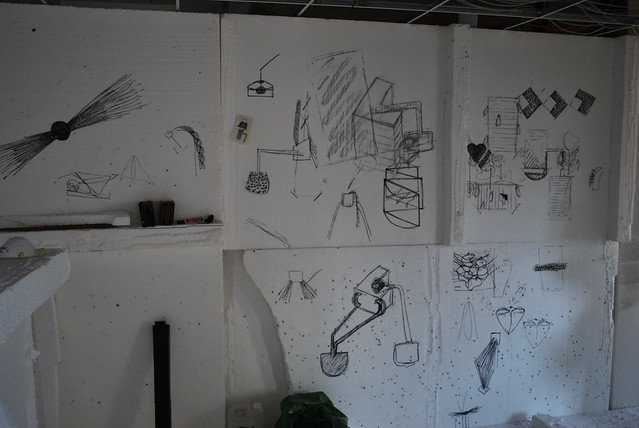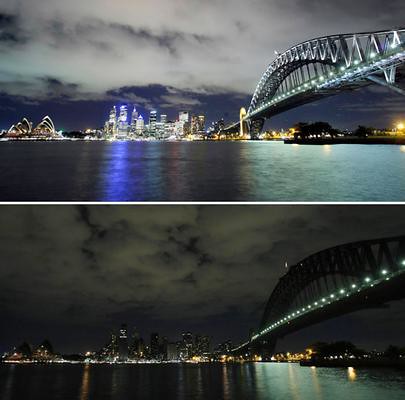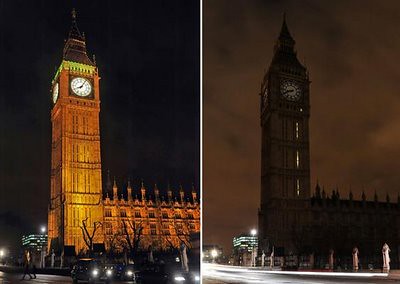It is one of the first days of spring, the clocks have changed, the daffs are out and Geordies are swapping their winter “t-short” for their summer one. I am riding down to the Centre for Life downhill from the campus with the wind in my barnet and a massive grin on my face . I am riding on one of the lime green chunky Scratch Bikes that have been a feature of the Newcastle University campus for 6 months.
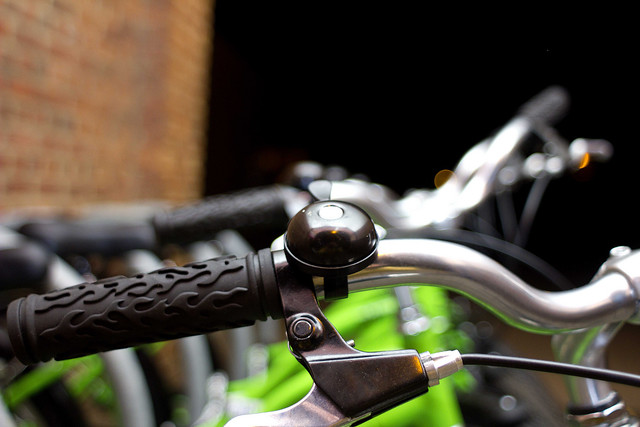
Funky and being green do not always go together- so we are lucky this is Newcastle and people are open minded and are used to stylish icons.
Bicycle sharing systems are schemes in which bicycles are made available for shared use by individuals who do not own them.
The bike share movement has some major benefits- Cycling is also promoted as a viable means of transport with the subsequent health benefit and reduced emissions. As people sharing a resource it means there is less consumption, less waste and less costs.
Newcastle has a newish bicycle sharing system called Scratch Bikes, it has been running since last summer/autumn and it has been set up by two of our very own students on a shoestring budget. No mean feat in these hard economic times.
Inspired by the cycle schemes they had seen across Europe, Robert Grisdale, 24 and Jack Payne, 23, realised the potential to translate the idea into something more suited to students. After graduating from Newcastle University with degrees in Civil Engineering, they decided that university self-service bike hire was an opportunity too good to ignore.
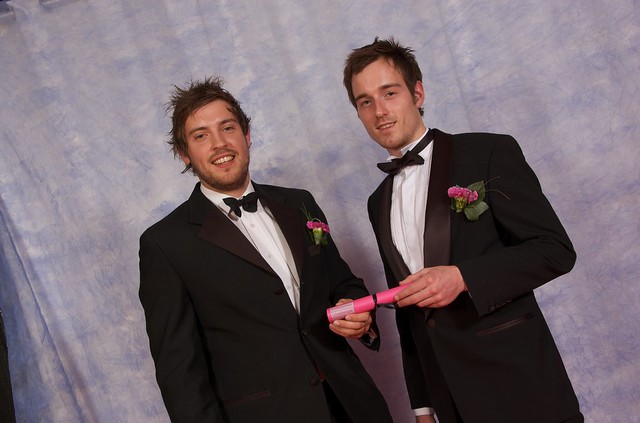
Scratch Bikes have received a few awards already
Bike share schemes are all the rage with most cities currently considering one. But it is not cheap- London and Leeds have had millions pumped into their schemes. And they are not without their problems- the Paris one found that users would leave bikes at the bottom of hills- and there are the obvious theft issues.
The boys said “With a more modest budget than any other scheme of its kind, Scratch Bikes were forced to take a fresh look at the self-service bike hire concept and use their creativity to find a solution that would work. They have stripped away some of the complexities and focussed on user experience. Their objective is to try to create the perfect journey for students. Focussing on getting from A to B in the easiest, and most fun way.”

Scratch Bikes HQ actually got their office furniture from our furniture reuse scheme
Review of the service
I suggested my department at work, Estate Support Service could use scratch bikes to get around campus to save time and promote health and well being. We would also be helping to support Scratch Bikes and so increase the use.
The following is a positive review with a few recommendations for improvement. My main recommendation is that this is somethign that all organisations who have city mobile staff could use this scheme and get numerous benefits. I personally support it wholeheartedly
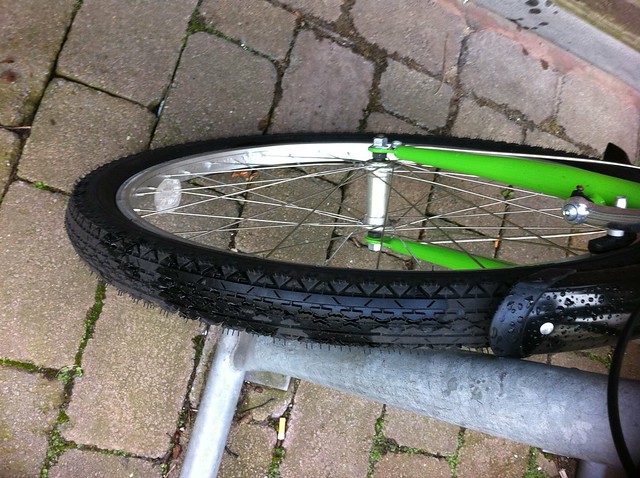
Scratch Bikes offered me a free trial and I have been using scratch bikes for a month. I have to travel around the campus and to outlying sites regularly. The bikes are robust and sturdy with chunky tyres suitable for the mean streets and pavements of the campus and Newcastle environs.
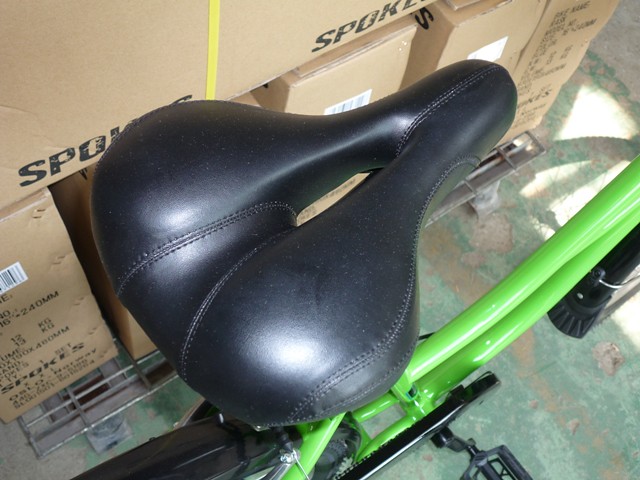
The seat is super comfortable with plenty of padding for bottoms and adjustable in height. There is also a cute little bell- which I am surprised has not become a target for little magpies. Each bike comes complete with a sturdy lock which you take with you. This fits conveniently around the frame.
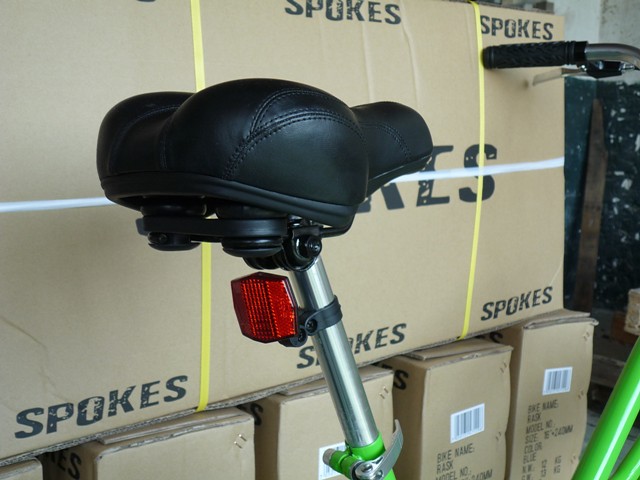
The bikes are easy and comfortable to cycle and surprisingly, not having any gears, the hills are not too bad. I have travelled to the far flung reaches of my waste manager galaxy taking in meetings at Campus for Ageing and Vitality and Centre for Life and have arrived at meetings early with no sweat (taking it easy), fresh, bright eyed and bushy tailed with a clear mind. I have never been splashed or got muddy and have avoided getting wet (planning required).
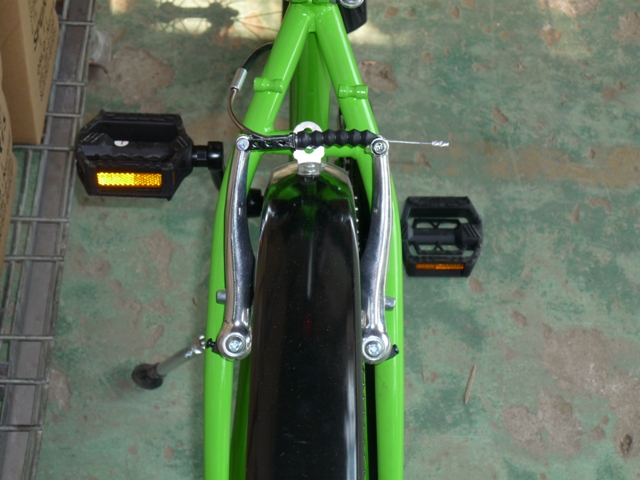
The time savings add up. It takes 30 minutes to walk to the hospital usually. On Scratch Bikes that is halved. Which means I can fit more in my day.
I now use the bikes for short trips as well. Even just going from Kensington Terrace down to Culture Lab saves 15 minutes in total on the round trip.
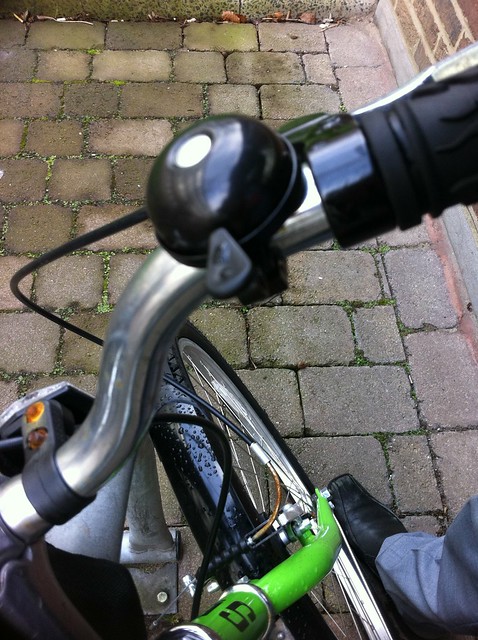
There are only a few down sides with operation. The possibility of wet seats, a requirement for a satchel for paper work and the locks can be stiff – all easy to overcome obstacles.
Rob has told me ” The existing seats will be replaced with seamless seats in the near future. This will stop moisture seeping into the padding and causing wet bums on rainy days.” and ” Sometimes the locks can be a bit stiff which is why we are stepping up our lubing efforts and replacing locks which are past their best.”
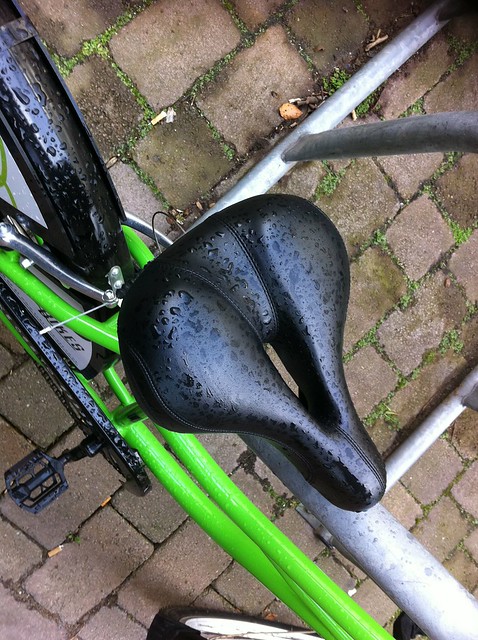
The system of booking in your time on the bike works in the main. There are some improvements that could be made- but remember this is just the start. Great ideas do not just appear they develop out of a number of different ideas.
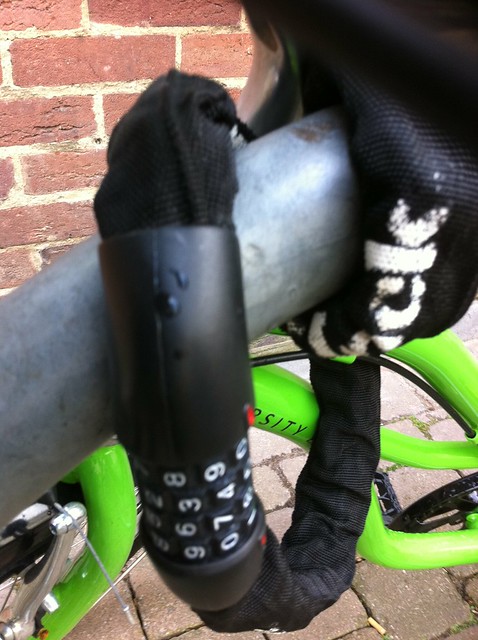
A critical mass of participation is needed if Scratch Bikes is going to take off. To get a critical mass you need easy participation. Easy participation comes down to being user friendly in the extreme.
At the moment it is not really easy to participate. I think this is mainly down to the technology scratch bikes are using and this has a knock on effect to the rest of the service. However this has something to do with the budget i suppose!
The text message service is not 100%, on two occasions I did not receive my reply text with the lock code- I waited but in the end had to walk the distance. All other journeys were fine though. This is not the end of the world but people expect a service to work.
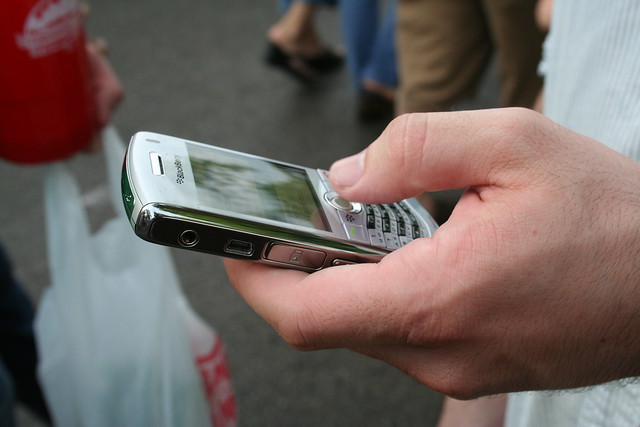
However Rob did say ” We plan to introduce a back-up system for when the code is not received within 30 seconds. The format of this is not yet certain but we’re working on it.”
The main message of this review is scratch bikes have made a great start- there is a great framework there for community leaders to look at and support and roll out Version 2 across Newcastle. But Scratch Bikes need to make the service more accessible by improving the technology used (Smartphone and social media integration), improving the communications and offering wider variety of payment plans.
Rob has mentioned “A free sign up option (casual use) and a subscription option (full membership). Casual users will be able to start using ScratchBikes for nothing but pay a bit more per rental. Alternatively, users will be able to sign up to a full membership. For an annual subscription fee, full users will be able to use the bikes for a nominal fee.”
Bike schemes are actually struggling in other large cities, there are reportedly only 70 trips a day being made on Melbourne’s brand spanking new public bike hire facility and Boris bikes in London do not seem to have taken off either.
I think this is a great service which belongs to us all. It is a commonly owned system which is very useful. I think we have to get behind this scheme to support it. I think all large city based organisations should use the system for getting about the city- even for short trips. When it reaches a critical mass of users it will take off and become a permanent feature of the city.
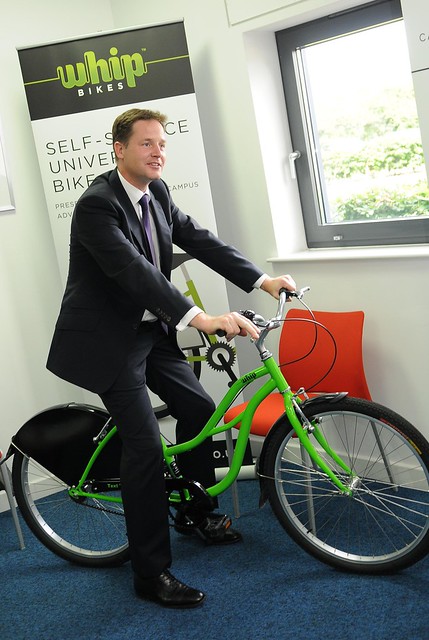
Attracting some big attention
Bigger picture observations
The biggest positive for me about the scheme is that it shows that people’s attitude to ownership is changing. You don’t need to buy a bike any more- you can share one. This has massive environmental implications which are increased as people learn to share and change their ownership attitude.
This is a movement which is gathering pace. Collaborative Consumption describes the rapid explosion in traditional sharing, bartering, lending, trading, renting, gifting, and swapping reinvented through network technologies on a scale and in ways never possible before. From enormous marketplaces such as eBay and Craigslist, to emerging sectors such as social lending (Zopa), peer-to-peer travel (Airbnb) and car sharing (Zipcar or peer-to-peer RelayRides), swap trading, time banks, local exchange trading systems (LETS), bartering, social lending, peer-to-peer currencies, tool exchanges, land share, clothing swaps, toy sharing, shared workspaces, cohousing, coworking, CouchSurfing, car sharing, crowd funding, bike sharing, ride sharing, food co-ops, walking school buses are all examples of collaborative consumption which is changing traditional consumerist business models.
Newcastle is the most sustainable city in the UK and needs a citywide cycle scheme. Everyone else has one or is looking at one. Scratch bikes is a great start towards that aim- the system needs refinement but we have the basics for the city. If the right support is given I think these bikes will grow to become part of the city.
